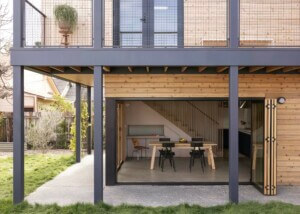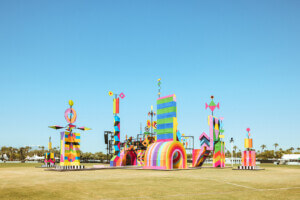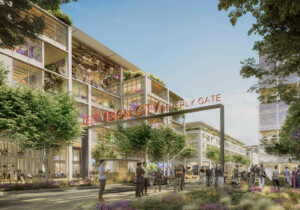Working between Los Angeles and Joshua Tree, California, artist Aili Schmeltz culls from a wide array of architectural and design iconographies, reducing and remixing them in paintings and sculptures, to question their ideological underpinnings. In A Future Perfect, her solo show on display now at the Los Angeles gallery Edward Cella Art & Architecture, Schmeltz toys with art deco and modernist visual languages that compose so much of the built landscape of Southern California. She pushes motifs from both styles into abstraction in order to trouble the “utopian” ideologies underpinning both the modernist architectural project and the United States’ westward expansion.
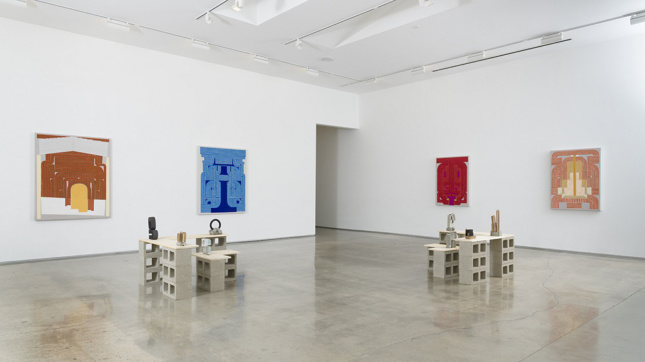
The work in A Future Perfect was in part inspired by another, large-scale undertaking of Schmeltz’s. According to the gallery, she had been working to turn “a homesteader cabin near Joshua Tree into an exhibition space and live-in gallery called Outpost Projects.” While painting the walls gallery-white, she “noticed an optical effect of the surrounding landscape shifting forward spatially through the windows while the walls receded into background.” This strange visual experience compelled her to play with flatness and three-dimensional architectonic forms with her paintings and sculptures designed to be interpreted as “both objects and windows.” It also pushed her to investigate the legacy of artists, architects, homesteaders, and others who have shaped the perception of our world, particularly of the post-colonial Western United States. Schmeltz is thinking through history and ideology not just with visual motifs, but also with ways of seeing.
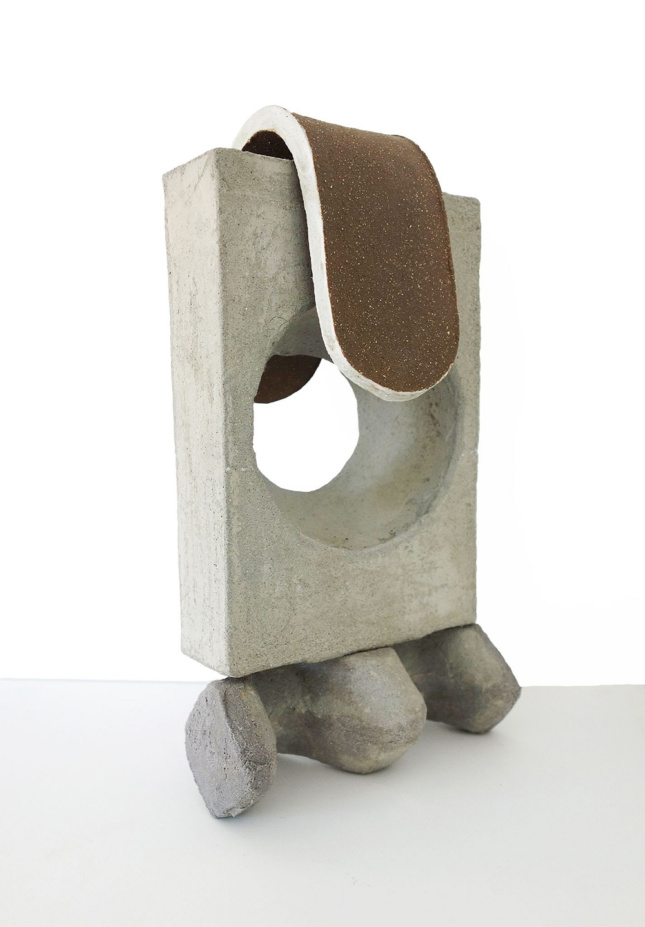
With references as wide-ranging as Louise Nevelson, Donald Judd, Le Corbusier, John Lautner, Richard Neutra, Hilma af Klint, and Frank Lloyd Wright, Schmeltz’s painted de- and re-constructions (all part of a series titled Object/Window/Both/Neither) challenge us in their total flatness, while the cinder block plinths that the sculptural forms sit on evoke the very fundamentals of the act of building, turning architectural decoration into strange objects. Schmeltz’s geometric abstractions, in their obvious constructedness, toy with the artificiality of our own contemporary “landscapes,” universes that have been built and shaped by human action and that carry so many hidden meanings and histories.
Aili Schmeltz: A Future Perfect
Edward Cella Art & Architecture
May 11 through June 22, 2019








